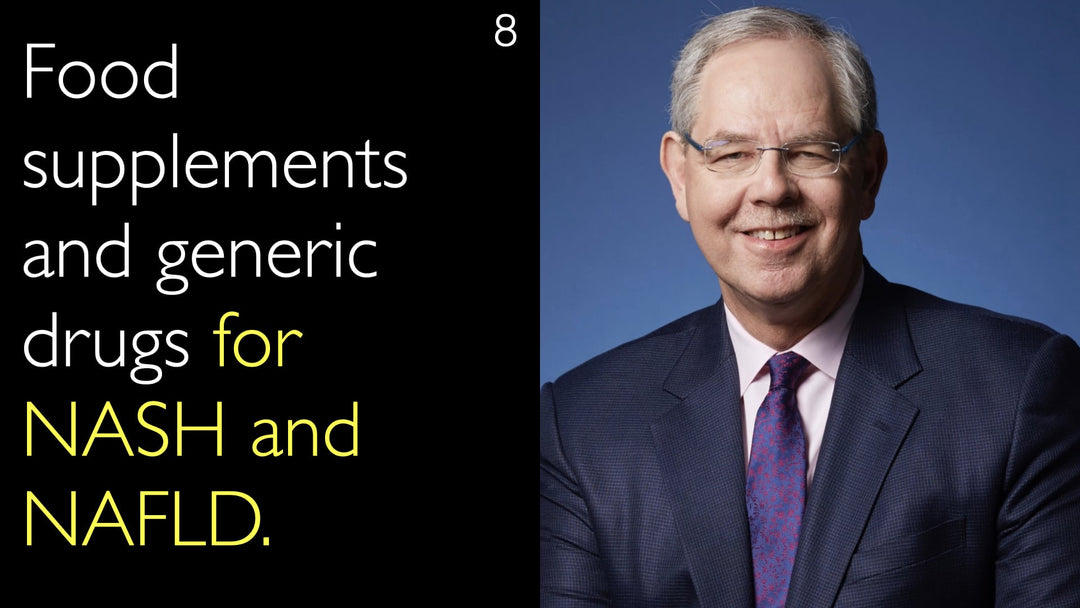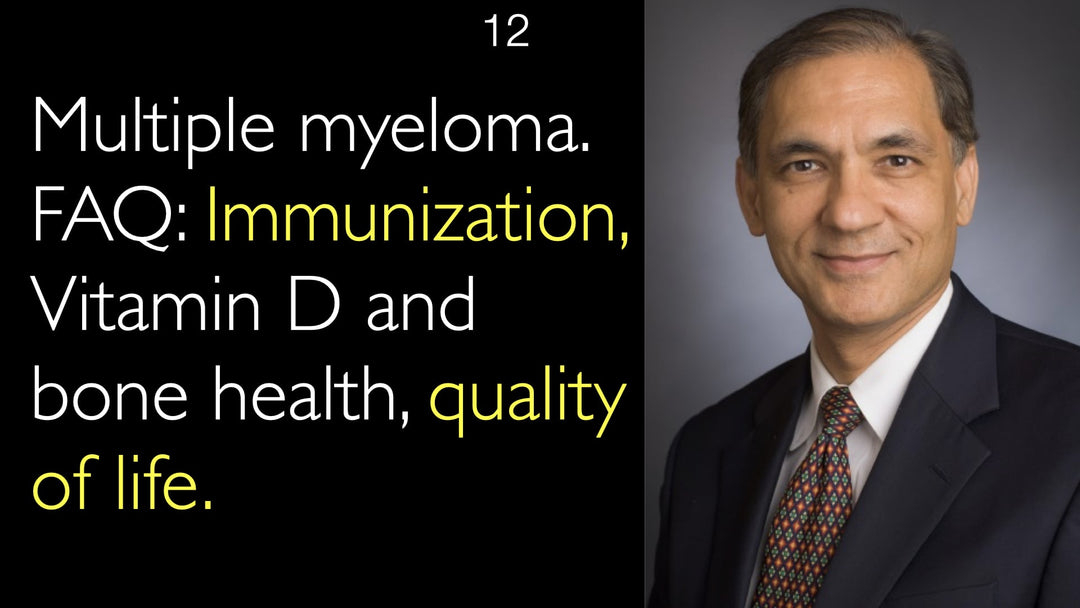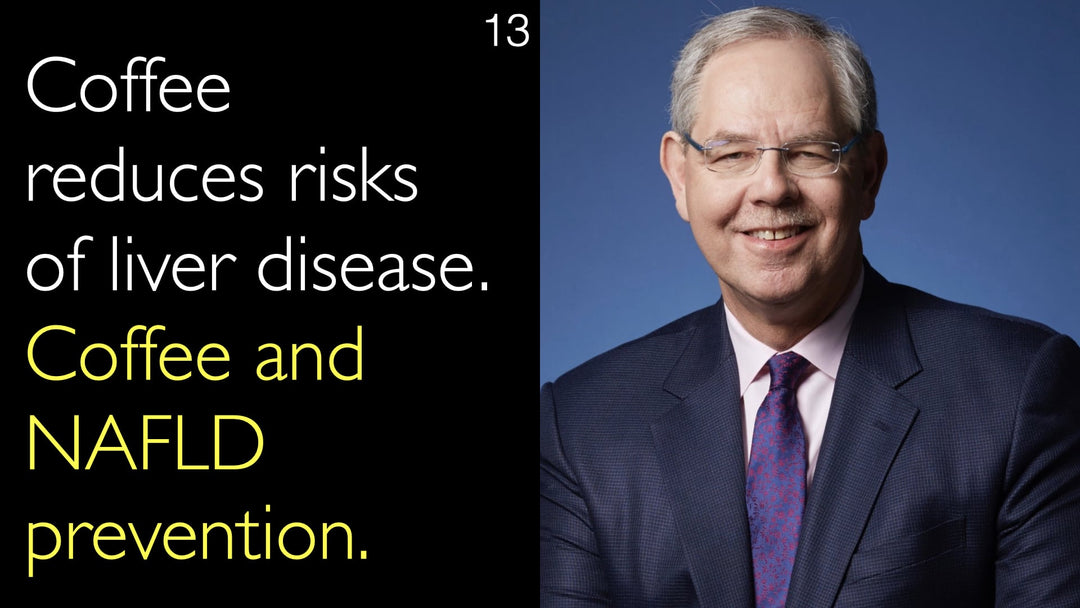Dr. Scott Friedman, MD, ein führender Experte für Lebererkrankungen, erläutert, wie das Darmmikrobiom die nicht-alkoholische Steatohepatitis (NASH) und die nicht-alkoholische Fettlebererkrankung (NAFLD) beeinflusst. Er stellt innovative Behandlungsansätze wie "Mikroben als Medikamente" und die fäkale Mikrobiota-Transplantation vor. Dr. Friedman betont die Schwierigkeit, nicht patentierbare natürliche Nahrungsergänzungsmittel und Generika für NASH zu entwickeln, und verweist auf das mangelnde kommerzielle Interesse der Pharmaindustrie an diesen wirksamen Therapien. Um diese kritische Forschungslücke zu schließen, sind Regierungen und Stiftungen gefordert.
Mikrobiom-Therapien und Repurposing von Medikamenten zur Behandlung von NASH und NAFLD
Direktnavigation
- Mikrobiom-Therapie bei NASH und NAFLD
- Zusammenhang zwischen Lean NASH und Mikrobiom
- Natürliche Supplemente zur NASH-Behandlung
- Medikamenten-Repurposing für die NASH-Therapie
- Kommerzielle Hürden in der NASH-Forschung
- Vollständiges Transkript
Mikrobiom-Therapie bei NASH und NAFLD
Dr. Scott Friedman, MD, beschreibt innovative mikrobiombasierte Strategien zur Behandlung der nichtalkoholischen Fettlebererkrankung. Der Ansatz umfasst die Übertragung gesünderer Bakterienprofile auf Patienten. Diese Methode nutzt effektiv "Bakterien als Medikamente", um das Fortschreiten der nichtalkoholischen Steatohepatitis (NASH) zu bekämpfen.
Dr. Scott Friedman, MD, erläutert, dass die gezielte Beeinflussung des körpereigenen Mikrobioms vielversprechend ist. Dies kann durch Probiotika oder selektive Antibiotika erreicht werden. Solche Interventionen zielen darauf ab, die Darmumgebung zu verändern und so die Lebergesundheit zu verbessern.
Zusammenhang zwischen Lean NASH und Mikrobiom
Dr. Scott Friedman, MD, betont einen überzeugenden Zusammenhang zwischen Auffälligkeiten im Mikrobiom und Lean NASH. Patienten mit Lean NASH haben ein normales Körpergewicht, entwickeln dennoch eine Fettlebererkrankung. Dies deutet auf nicht-traditionelle Auslöser in diesen Fällen hin.
Laut Dr. Friedman tragen auch genetische Faktoren und ethnische Risiken zu Lean NASH bei. Die ungewöhnliche Zusammensetzung des Mikrobioms bei diesen Patienten könnte die Entstehung von NAFLD begünstigen. Diese Erkenntnis eröffnet neue Wege für gezielte Mikrobiomtherapien bei bestimmten Patientengruppen.
Natürliche Supplemente zur NASH-Behandlung
Dr. Anton Titov, MD, erkundigt sich nach natürlichen Substanzen wie Butyrat und Curcumin zur Behandlung von NASH. Diese Verbindungen zeigen Potenzial, proinflammatorische Zytokine wie NF-kappa-B zu reduzieren. Sie bieten Patienten zugängliche rezeptfreie Optionen.
Dr. Scott Friedman, MD, bestätigt, dass diese natürlichen Substanzen wirksam sein könnten. Allerdings merkt er an, dass Pharmaunternehmen wenig Interesse an ihrer Entwicklung haben. Der fehlende Patentschutz macht sie trotz möglicher Vorteile kommerziell unattraktiv.
Medikamenten-Repurposing für die NASH-Therapie
Dr. Scott Friedman, MD, diskutiert den vielversprechenden Ansatz, bereits zugelassene Medikamente für die NASH-Behandlung umzuwidmen. Arzneimittel, die für andere Erkrankungen entwickelt wurden, könnten auch bei Fettlebererkrankungen wirksam sein. Diese Strategie nutzt die bekannten Sicherheitsprofile etablierter Präparate.
Dr. Friedmans Labor hat Studien durchgeführt, die überraschende Vorteile von umgewidmeten Medikamenten bei NASH zeigen. Diese Ergebnisse deuten darauf hin, dass mehrere bestehende Wirkstoffe wirksame Lebertherapien sein könnten. Die Herausforderung besteht darin, diese Erkenntnisse aus dem Labor in die klinische Praxis zu überführen.
Kommerzielle Hürden in der NASH-Forschung
Dr. Scott Friedman, MD, identifiziert erhebliche kommerzielle Hürden bei der Entwicklung von NASH-Medikamenten. Pharmaunternehmen priorisieren patentgeschützte Substanzen gegenüber natürlichen Supplementen oder Generika. Dadurch entsteht eine Versorgungslücke für potenziell wirksame Therapien.
Dr. Scott Friedman, MD, betont, dass die tatsächliche Medikamentenentwicklung über Wirksamkeit und Sicherheit hinausgeht. Kommerzielle Überlegungen bestimmen oft, welche Behandlungen Forschungsförderung erhalten. Er plädiert für Unterstützung durch Stiftungen und staatliche Stellen, um diese kritische Lücke zu schließen.
Vollständiges Transkript
Dr. Scott Friedman, MD: Sie erwähnten in einer Ihrer Übersichten auch Strategien wie "Behandle das Bakterium" und "Bakterien als Medikamente" zur Behandlung der nichtalkoholischen Fettlebererkrankung und NASH. Das stimmt. Es könnte also die Übertragung von Bakterien mit einem gesünderen Profil sein – effektiv wird das Bakterium zum Medikament.
Dies, zusammen mit dem Versuch, das körpereigene Mikrobiom durch den Einsatz von Probiotika oder möglicherweise selektiven Antibiotika zu verändern, kann letztlich das Mikrobiom transformieren und hoffentlich den Verlauf von NASH beeinflussen.
Ich denke, das Mikrobiom ist besonders überzeugend als Treiber bei jenen Patienten mit Lean NASH. Schließlich haben sie kein überschüssiges Fett in der Leber und keine Adipositas, und dennoch entwickeln sie NASH.
Für mich spricht dies – zusammen mit genetischen Faktoren und ethnischen Risiken – dafür, dass diese NASH-Patienten ein ungewöhnliches Mikrobiom oder ungewöhnliche Komponenten ihres Mikrobioms haben könnten, die zu NAFLD führen, obwohl sie schlank sind.
Wir befinden uns noch in frühen Stadien, aber ich bin zuversichtlich, dass wir weitere Fortschritte erzielen werden.
Dr. Anton Titov, MD: Wie sieht es mit Strategien aus, die kleine Moleküle oder natürliche Substanzen wie Butyrat oder Curcumin verwenden, um proinflammatorische Zytokine einschließlich NF-kappa-B zu reduzieren?
Dr. Scott Friedman, MD: Der aktuelle Ansatz der pharmazeutischen und biotechnologischen Industrie ist die Identifizierung von Medikamentenzielen entweder im Darm oder in der Leber, die regulierend wirken und so zur Besserung oder Heilung von NASH beitragen können.
Butyrat weniger. Es gibt eine leicht zynische Sichtweise: Die natürlichen Verbindungen und Substanzen, die uns rezeptfrei als Supplemente zur Verfügung stehen, sind für die pharmazeutische Industrie nicht besonders interessant, weil sie nicht patentierbar sind und keinen kommerziellen Erfolg versprechen.
Ich denke, wir müssen anerkennen, dass es möglicherweise wirksame Behandlungen gibt – sogar bereits existierende Medikamente, die umgewidmet werden könnten – aber sie werden nicht angemessen verfolgt, weil der kommerzielle Anreiz fehlt.
Es gibt kein Unternehmen, das kommerziell von einem solchen Medikament profitieren würde. Daher ist es schwierig, Substanzen wie Butyrat zu testen, auch weil kein kommerzielles Interesse an der Entwicklung solcher Therapien besteht.
Das ist ein Bereich, in dem Stiftungen und Regierungsbehörden eine wichtige Lücke schließen können, indem sie entweder gut charakterisierte und sichere natürliche Verbindungen oder sogar umgewidmete Medikamente fördern, die bereits außerhalb ihrer Patentlaufzeit sind, aber sehr verträglich sein könnten.
Wir haben in meinem Labor einige Studien durchgeführt, die zeigen, dass Medikamente, die bereits für andere Erkrankungen getestet wurden, überraschenderweise auch bei NASH wirksam sein können.
Leider konnten wir die kommerziellen Sponsoren, die die Patente halten, nicht dazu bewegen, diese Medikamente tatsächlich umzuwidmen und in ein klinisches NASH-Therapieprogramm zu investieren.
Es gibt also einige praktische Überlegungen bei der Medikamentenentwicklung, die über Wirksamkeit und Sicherheit hinausgehen. Ich wünschte, es wäre anders, aber so funktioniert das System nun einmal.







